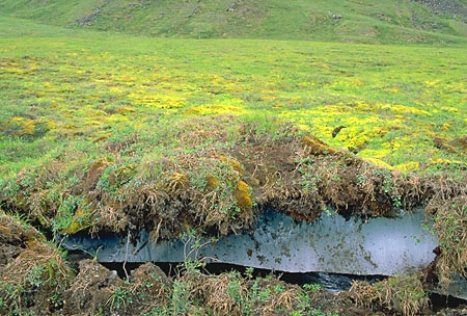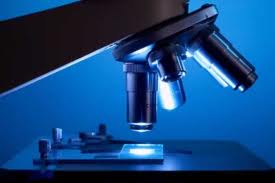|
|
|
|
|
|
|
|
No Arctic-science events are announced today.
|
Media
'Help Continue Our Language:' Alaskan Inuit Dialect Added to Facebook. Facebook added Inupiaq, an Alaskan Inuit dialect, as a language option thanks to a grassroots project started by an Alaskan man. Myles Creed is from the Inupiaq community of Kotzebue, Alaska. He's a PhD student studying linguistics at the University of Victoria and is involved with Inupiaq language revitalization in Alaska. Yahoo! News
Fairbanks Archaeologist Finds Surprising Connection Between Prehistoric China and Alaska Cultures. The source from which the Inuit and Yupik people of Alaska drew their cultural inspirations has long vexed researchers. But a paper by Fairbanks-based archaeologist Feng Qu offers new insight on where the art and toolmaking styles employed by the Okvik and Old Bering Sea cultures (100 AD-800 AD) that predated them might have first emerged. Published in 2014 in the peer-reviewed Journal Sibirica, which focuses on Siberian studies, the paper upends long held views on where the cultural practices of prehistoric Eskimo peoples originated. Anchorage Daily News
 Getting to Know the Microbes that Drive Climate Change. Getting to Know the Microbes that Drive Climate Change. A new understanding of the microbes and viruses in the thawing permafrost in Sweden may help scientists better predict the pace of climate change. Microbes have significant influence over global warming, primarily through the production of -- or consumption of -- methane, and new details about these microscopic beings' genetics is now available, thanks to a trio of studies from a project co-led by researchers at The Ohio State University. The research appears in Nature, Nature Microbiology and ISME Journal. Science Daily
Fulbright Specialists Envisions More Conflict as Arctic Ice Melts. With melting ice opening up access to new trade routes and natural resources, many policymakers as well as ethicists worry that political and economic competition will lead to more conflict in the Arctic region. They include Dr. Fritz Allhoff, a professor of philosophy at Western Michigan University, who recently helped stage an international workshop that developed realistic scenarios for what future Arctic conflicts might look like. Western Michigan University
 Tyumen University to Open Ecology Monitoring Laboratory. Tyumen University to Open Ecology Monitoring Laboratory. Students and young scientists at the Tyumen State University will do ecology research at a special laboratory, which the University will organize. This laboratory will be used also for Arctic projects, Director of the University's Institute of the Earth's Studies Vitaly Khoroshavin told TASS. "We shall have a laboratory, where students would be able to make research, related to analyzing natural environments: mostly soil, water. <...> Students will learn how the equipment works, they will make scientific research - we shall involve students actively to scientific work, where not much is possible without ecological chemical analyses," he said. TASS
|
|
Future Events
17th International Congress of Circumpolar Health (ICCH17), August 12-15, 2018 (Copenhagen, Denmark). The ICCH congresses are held every third year in different locations in the circumpolar area and represent the largest scientific meetings worldwide on circumpolar health. The ICCH congresses serve as the primary source of information exchange and scholarly communication in issues relating to circumpolar health. More than 750 participants generally register and participate in each Congress, and more than 400 scientific papers or posters are usually presented.
UArctic Congress 2018, September 3-7, 2018 (Oulu and Helsinki, Finland). The UArctic Congress 2018 will bring together key UArctic meetings and a science conference into one single gathering, including business meetings of the Council of UArctic, Rectors' Forum, Student Forum, and Thematic Networks & UArctic Institutes Leadership Team. The Congress is an integral part of the Finland's Arctic Council chairmanship program, and open to the public. The event will highlight the themes and priorities of the Finnish chairmanship, including the goals of the United Nations' 2030 Agenda for Sustainable Development, and the Paris Agreement under the UN Framework Convention on Climate Change.
Scientific Exploration of the Arctic and North Pacific (SEA-NorP), September 25-27, 2018 (Mt. Hood, Oregon USA). This workshop will include discussion of hypotheses that can be tested by scientific drilling in the region, the technology necessary to achieve those goals, ideal sites for drilling based on existing data, and where additional site survey data is needed. The goal of the workshop organizers is that multiple proposals will be initiated at the workshop, both for full cruise legs and for shorter, targeted expeditions around the following themes: ocean gateways, geohazards, volatile cycling, ice histories at transition zones, biosphere and climate.
** New this week ** Polar Law Symposium (11th annual), October 2-4, 2018 (Tromsø, Norway). This symposium brings together established scholars and post-doctoral and doctoral researchers from all across the world to share research in the fields of polar law and policy. Leading experts are invited to give keynote lectures. A history of the symposium is here, news about it is here, and registration is here.
The second Arctic Biodiversity Congress is hosted by the Conservation of Arctic Flora and Fauna (CAFF), the biodiversity working group of the Arctic Council, and the Ministry of the Environment, Finland. The second Arctic Biodiversity Congress will build on the success of the first Congress, held in 2014 in Trondheim, Norway, and will bring together scientists, policymakers government officials, Indigenous representatives, Traditional Knowledge holders, industry, non-governmental organizations, and others to promote the conservation and sustainable use of Arctic biodiversity.
Arctic Circle Assembly, October 2018 (Reykjavik, Iceland). The annual Arctic Circle Assembly is the largest annual international gathering on the Arctic, attended by more than 2000 participants from 60 countries. It is attended by heads of states and governments, ministers, members of parliaments, officials, experts, scientists, entrepreneurs, business leaders, indigenous representatives, environmentalists, students, activists and others from the growing international community of partners and participants interested in the future of the Arctic.
Arctic Science Forum Associated with the 2nd Arctic Science Ministerial, October 25, 2018 (Berlin, Germany and via webcast). How vulnerable and how resilient are nature and the people of the Arctic region? How well do we understand the regional and global dynamics which are driving change in the Arctic? What impact will change in the Arctic have on us? These and other questions are the focus of this two-day conference. It will take interdisciplinary research in the Arctic to gain an understanding of past and future processes - a complex and cost-intensive venture. This makes an international network of Arctic research so important for delivering better results. Cooperation in research, the exchange of data, collaborative observation and monitoring schemes - international cooperation is imperative in research on the Arctic. Only the Science Forum on October 25th will be webcast.
American Geophysical Union Fall meeting, December 10-14, 2018 (Washington, DC USA). The AGU 2018 Fall Meeting will mark another dynamic year of discovery in Earth and space science, serve as the advent of AGU's Centennial year, and provide a special opportunity to share our science with world leaders in Washington, D.C. As the largest Earth and space science gathering in the world, the Fall Meeting places you in the center of a global community of scientists drawn from myriad fields of study whose work protects the health and welfare of people worldwide, spurs innovation, and informs decisions that are critical to the sustainability of the Earth.
Arctic Frontiers, January 20-25, 2019 (Tromso, Norway). The Arctic Frontiers started out in 2006 assembling the first global scientific conference on economic, societal and environmental sustainable growth in the north. In January 2019, the hosts will arrange the 13th conference with the theme "Smart Arctic". The conference has a pan arctic perspective and builds new partnerships across nations, generations and ethnic groups. Arctic Frontiers provides a forum for dialogue and communication between science, government and industry in the Arctic. In 2019, the Arctic Frontiers plenary program will have five main sessions with the following tentative working titles: State of the Arctic, Blue Growth, Smart Solutions, Bridging the gap and Arctic business prospects. Following the plenary, we will organize an abstract driven science program addressing Plastics in the Ocean, the Future of Governance and Handling Vulnerability in Arctic Ecosystems, State of the Arctic and A Smart Arctic Future.
|
|

  
4350 N. Fairfax Drive, Suite 510
Arlington, VA 22203, USA
External links in this publication, and on the USARC's World Wide Web site ( www.arctic.gov) do not constitute endorsement by the US Arctic Research Commission of external Web sites or the information, products or services contained therein. For other than authorized activities, the USARC does not exercise any editorial control over the information you may find at these locations. These links are provided consistent with the stated purpose of this newsletter and the USARC Web site.
|
|
|
|
|
|
|
|
|
 Getting to Know the Microbes that Drive Climate Change. A new understanding of the microbes and viruses in the thawing permafrost in Sweden may help scientists better predict the pace of climate change. Microbes have significant influence over global warming, primarily through the production of -- or consumption of -- methane, and new details about these microscopic beings' genetics is now available, thanks to a trio of studies from a project co-led by researchers at The Ohio State University. The research appears in Nature, Nature Microbiology and ISME Journal. Science Daily
Getting to Know the Microbes that Drive Climate Change. A new understanding of the microbes and viruses in the thawing permafrost in Sweden may help scientists better predict the pace of climate change. Microbes have significant influence over global warming, primarily through the production of -- or consumption of -- methane, and new details about these microscopic beings' genetics is now available, thanks to a trio of studies from a project co-led by researchers at The Ohio State University. The research appears in Nature, Nature Microbiology and ISME Journal. Science Daily Tyumen University to Open Ecology Monitoring Laboratory. Students and young scientists at the Tyumen State University will do ecology research at a special laboratory, which the University will organize. This laboratory will be used also for Arctic projects, Director of the University's Institute of the Earth's Studies Vitaly Khoroshavin told TASS. "We shall have a laboratory, where students would be able to make research, related to analyzing natural environments: mostly soil, water. <...> Students will learn how the equipment works, they will make scientific research - we shall involve students actively to scientific work, where not much is possible without ecological chemical analyses," he said. TASS
Tyumen University to Open Ecology Monitoring Laboratory. Students and young scientists at the Tyumen State University will do ecology research at a special laboratory, which the University will organize. This laboratory will be used also for Arctic projects, Director of the University's Institute of the Earth's Studies Vitaly Khoroshavin told TASS. "We shall have a laboratory, where students would be able to make research, related to analyzing natural environments: mostly soil, water. <...> Students will learn how the equipment works, they will make scientific research - we shall involve students actively to scientific work, where not much is possible without ecological chemical analyses," he said. TASS
